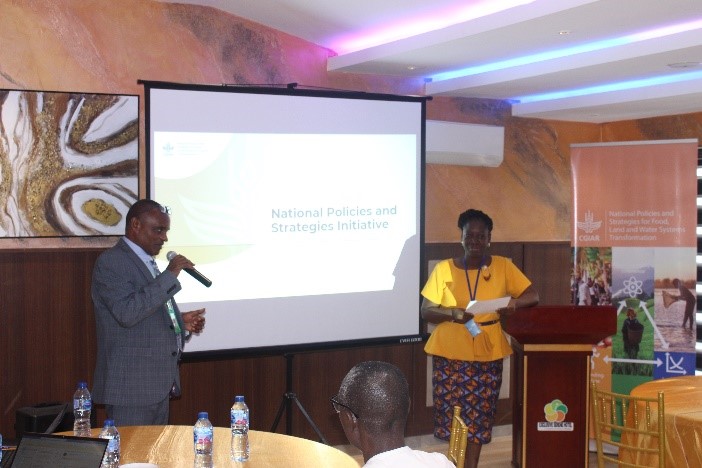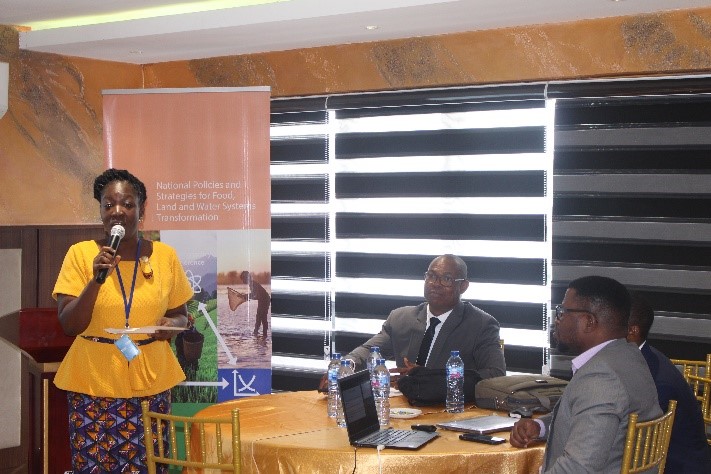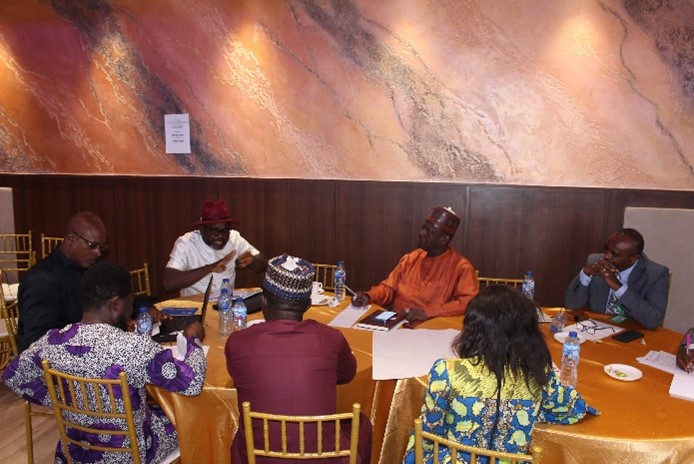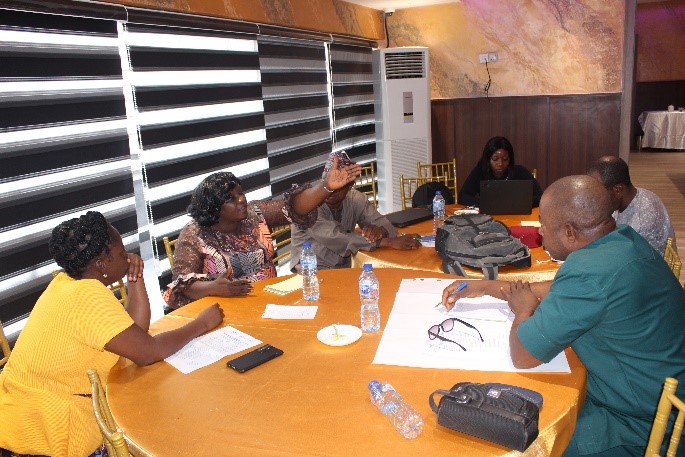
Photo credit: Omobolanle Onilogbo/IFPRI
On 23 August 2023, the CGIAR Initiative on National Policies and Strategies, co-led by the International Food Policy Research Institute (IFPRI) and the International Water Management Institute (IWMI), organized a stakeholders’ validation workshop on a draft flagship report on “Policy Coherence in Food, Land and Water (FLW) Systems in Nigeria”. Using the polices and institutions landscape analysis (PILA) framework, the flagship study undertakes a detailed assessment of the (in)coherence in four selected recent national policies associated to the FLW systems in Nigeria. The four examined include: (1) Agriculture Promotion Policy (2016-2020), (2) National Water Policy (2004), (3) National Policy on Food Safety and Its Implementation Strategy (2014), and (4) CBD National Biodiversity Strategy and Action Plan (2016-2020). The purposes of the workshop were to: (1) facilitate expert discussion on (in)coherencies of the four selected policies; (2) disseminate and validate findings of the flagship report, and (3) co-develop pathways for further policy research, engagements, capacity strengthening and investments to contribute to addressing policy incoherencies in FLW system in Nigeria.
Thirty participants drawn from the public sector including the Federal and State Ministries of Agriculture, Nigeria Governors’ Forum (NGF), All Farmers Association of Nigeria (AFAN), Federal Ministry of Water Resources; Development Partners, Academia and the Media attended the workshop. The workshop was co-facilitated by Dr Bedru Balana (Research Fellow, IFPRI Nigeria), and Dr Charity Osei-Amponsah (Senior Regional Researcher, IWMI-Ghana).
Dr. Bedru Balana (left) and Dr. Charity Osei-Amponsah (right) giving presentations at workshop.
Photo credit: Omobolanle Onilogbo/IFPRI
Hyacinth Edeh, Country Program Manager, IFPRI-Nigeria, Dr. Ernest Umakhihe, the Permanent Secretary of the Federal Ministry of Agriculture and Food Security (represented by Dr. Adegboye Michael Adejare), and Dr. Olufunke Cofie, Country Representative, IWMI-Ghana delivered opening statements and welcome addresses. Following the introduction, the first part of the workshop focused on facilitated breakout group discussions to gauge the level of stakeholders’ understanding on the FLW related policies in Nigeria and motivate follow-up discussions on flagship report.
A plenary session on feedbacks, reflections, and Q&A followed the parallel group discussions based on presentations from each of the three groups – Food, Land, and Water.
- The “Food” discussion group proposed building the capacity of implementers and state institutional support, and that policies should be transparent and communicated among stakeholders.
- The “Land” discussion group proposed that there needs to be a review of the Land Use Act whereby individuals should be allowed to own lands, and applications should have a digital option. Also, there needs to be a review of the current trade policy to allow for free import duty on agricultural implements, and to encourage local manufacturers.
- The ‘Water” discussion group proposed a collaboration between the departments of the Federal Ministries of Agriculture and Food Security (FMAFS) and Water Resources, and awareness creation and sensitization of the local people, on management of water resources. The group also suggested the creation of water point corridors for animals.
Following the group discussion sessions, the consultant, Prof. Anthony O. Onoja, of the University of Port Harcourt, presented the draft flagship report which was followed by Q & A, comments, and suggestions.
Participants expressed satisfaction with the workshop and the opportunities for collaboration on innovative solutions to mitigate the challenges in the food, land, and water systems in Nigeria. The readiness and enthusiasm of the different partners for collaborations was very encouraging. Government stakeholders expressed their willingness to engage with the Initiative team and implementing local partners and contribute to the Initiative's success in producing evidence to support better and targeted policies in the food, land, and water systems in Nigeria.
Participants during the stakeholders’ group work session.
Photo credit: Omobolanle Onilogbo/IFPRI





